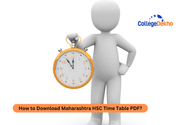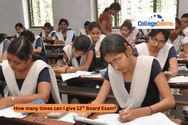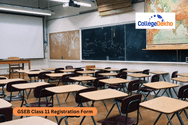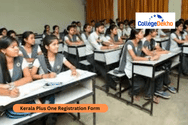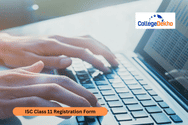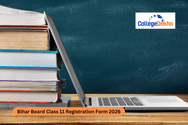Bihar Board Class 12 Math Syllabus 2025-26 was released on the official website in the PDF format. You can check the detailed syllabus for Mathematics subjects and make a study schedule to prepare for class 12 board exams.
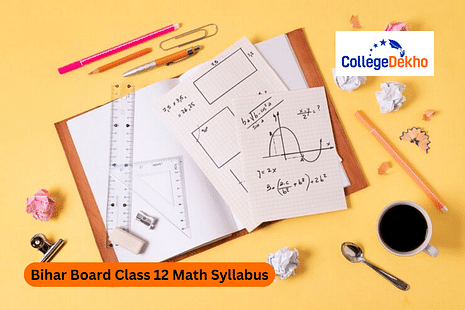

Never Miss an Exam Update
Bihar Board Class 12 Math Syllabus 2025-26: Bihar School Examination Board provided the Class 12 Math Syllabus 2025-26 on the official website. The syllabus includes six units which are further divided into different chapters. Among all units, Calculus consists of the highest marks. You will find questions worth 40 marks in the final exams. The questions will be related to Differentiability, Applications of Derivatives, Indefinite Integrals, Definite Integrals, Application of integrals, and Differential Integrals. In total, students will have to answer questions worth 100 marks. Different sections will be included in the question paper and you will get 3 hours duration to solve the questions. Continue reading the article to get more information about the updated Bihar Board Class 12 Math Syllabus 2025-26.
Also Read - Bihar Board Class 12 Previous Year Question Papers
Bihar Board Class 12 Math Syllabus 2025-26 PDF Link
Click on the link below to download the Bihar Board Class 12 Math Syllabus 2025-26 in the PDF format.| Bihar Board Class 12 Math Syllabus 2025-26 PDF |
|---|
BSEB Class 12 Math Syllabus 2025-26
Check out the syllabus in the table below to prepare for the board exams. All the units are mentioned in the table below for students to check the syllabus in detail. Study all the units and solve questions from each of them to get the highest marks in the subject.
UNIT 1 - RELATIONS AND FUNCTIONS
- Relations and Functions: Types of relations: Reflexive, Symmetric and Transitive, Equivalence relations, Composite functions, Inverse of a function, Binary Operations.
- Inverse trigonometric Functions: Elementary concepts and properties of inverse trigonometric functions, Definition. Range, domain, general and principle value branches. Graphs of inverse trigonometric functions. Elementary properties of inverse trigonometric functions.
UNIT 2 - ALGEBRA
- Matrices :
Concept of a matrix, Notation, order, equality, types of matrices, zero matrix, transpose of a matrix, Symmetric and Skew-symmetric matrices. Addition, Multiplication and scalar multiplication of matrices, Addition, Multiplication and scalar multiplication of matrices and their simple properties, Non-commutativity of matrix-multiplication and concepts of zero-divisors in product of matrices. Concept of elementary row and column if it exists.
operations. Adjoint of a matrix and invertible matrices. Proof of uniuences of inverse, if it exists.
- Determinants:
Determinant of a square matrix (upto 3 & 3 matrices), Properties of determinants, minors, cofactors and applications of determinants in finding the area of a triangle. Consistency, inconsistency and number of possible solutions of a system of linear equations in two or three variables (using matrix inversion method).
UNIT 3 - CALCULUS
- Differentiability :
Derivative of a function at a point, Derivative of a composite function, Chain rule.
Derivatives of implicit functions, inverse circular functions, exponential and logarithmic functions. Logarithmic differentiation. Derivative of functions expressed in parametic forms. Derivatives upto order three.
Rolle's and Lagrange's mean value theorems / theorem (without proof) and their geometric interpretations.
- Applications of Derivatives :
dy / dx as a rate-measurer, geometric interpretation of dy/dy, increasing and decreasing functions, tangents and normals, approximation, signs of derivatives, maxima and minima
- Indefinite Integrals:
d
- Definite integrals:
Definite Integrals as limit of a sum and its simple properties. Fundamental theorem of calculus (without proof), Evaluation of definite integrals. Properties of definite integrals.
- Application of the integrals :
Application in finding the area enclosed by simple curves, especially lines, areas of circles / Parabolas / ellipses (in standard form), area between the two above said curves (clearly identifiable regions).
- Differential Equations :
Definition, order degree. Formation of differential equation whose general solution is given, general and particular solutions of a differential equations. Solution of differential equations by method of separtion of variables, homogenous differential equations of first order and first degree. Linear differential equation of order one (or the lype: dy/
dx + p(x)y = q(x). Applications of differential equations to problem related to the
environment and to Dynamics (simple cases only).
UNIT 4 - VECTORS AND THREE-DIMENSIONAL GEOMETRY
- Vectors :
Vectors and scalars, magnitude, and direction of a vector. Direction consines / ratios of a vector, types of vectors (equal, unit, zero, parallel and collinear vectors), position vector of a point, negative of a vector, local and free vectors, components of a vector, addition of vectors, multiplication by scalars. Position vector of a point dividing a line segment in a given ratio. Scalar and vector product of two vectors with their geometrical meaning. Projection of a vector on a line. Scalar and vector triple product.
- Introduction to Three-dimensional Geometry :
Co-ordinate axes and co-ordinate planes in three dimensions. Co-ordinates of a point.
Distance between two points and section formula.
Direction cosines / ratios of a line joining two points. Cartesian equation of a line and plane. Angles between (a) two lines, (b) two planes, (c) aline and a plane. Distance of a point from a line. Collinearity of three points. Coplanar and skew lines. Shortest distance between two lines. Condition of intersection of two lines and two planes and a" line and a plane.
Condition of coplanarity of two lines in vector and cartesian form length of perpendicular of a point from a plane by both vectors and cartesian method.
UNIT 5 - LINEAR INEQUATIONS AND LINEAR PROGRAMMING
- Linear inequations, Algebraic solutions of linear inequations in one variable and their representation on the number line. Graphical solutions of linear inequations in two variables. Solution of system of linear inequations in two variables (graphically).
Introduction, definition of related terminology such as constraints, objective function, optimization, different types of linear programming problems (LPP), mathematical formulation of LPP, graphical method of solution for problems in two variables, feasible and infeasible regions, feasible and infeasible solutions, optimal and feasible solutions (up to three non-trivial constraints)
UNIT 6 - PROBABILITY
- Probability: Multiplication theorem on probability. Conditional probability. independent events, total probability, Bay'es theorem. Random variable and its probability distribution, mean and variance of haphazard variable. Repeated independent (Bernoulli) trials and Binomial distribution.
Note: Attempt should be made to discuss real life problems as far as practicable. Techniques of matrices, calculus and linear programming should be used to solve such problems.
BSEB Class 12 Math Marking Scheme 2025-26
After going through the BSEB Class 12th Maths syllabus, students can check the marking scheme too. The table below shows the marks weightage for all units in the subject. Students can check the units that have the highest marks. Accordingly, they can prepare the syllabus and aim to score high marks.
Unit | Marks |
|---|---|
Unit 1 | 10 |
Unit 2 | 13 |
Unit 3 | 40 |
Unit 4 | 18 |
Unit 5 | 09 |
Unit 6 | 10 |
Also Check: Bihar 12th Preparation Tips 2026
BSEB 12th Maths syllabus 2025-26 helps students to prepare for the board examinations. Besides preparing for the theory exams, students will also have to appear for the practical exams.
Are you feeling lost and unsure about what career path to take after completing 12th standard?
Say goodbye to confusion and hello to a bright future!

FAQs
Students can go through the BSEB Class 12th Math syllabus in detail and solve the related questions. By solving different question papers and model papers, students can perform well in board exams and score higher marks.
The students should focus on completing the BSEB Class 12th Math syllabus 2025-26 first. With clear concepts, they can start solving the questions. Through regular practice, students will be able to solve questions quickly and easily.
The board will only conduct a theory exam for Bihar Board Class 12 Mathematics 2025-26. There will be 6 units included in the theory exam. The students should prepare them well and learn to solve questions for each of them.
While studying for the BSEB Class 12 Math 2025-26, students can go through the topics mentioned in the syllabus according to the marks allocated. They can set the priority for all units according to the marks. Calculus is one of the units with the highest marks. It will contain question worth 40 marks.
Students can go through the books prescribed by the Bihar board for the BSEB class 12 Math syllabus 2025-26. The question paper will be set based on the content mentioned in the Bihar books syllabus.
Bihar board has released the BSEB Class 12th Maths syllabus on its official website. Students can visit the official website to download the Maths syllabus in the PDF format. Accordingly, they can prepare a schedule and aim to perform well in board exams.
Was this article helpful?










